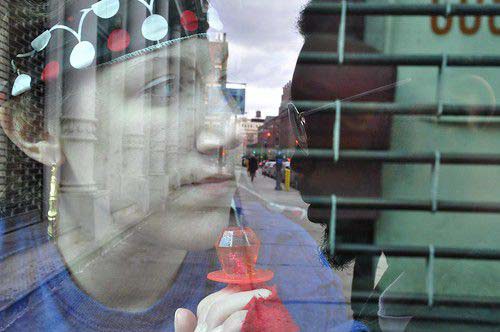I Feel Lost in Life. What Can I Do About It?

Although we may not say it to other people, many of us have known that feeling: I feel lost in life. It’s a feeling that may be associated with anxiety, or even depression.

A considerable number of people could tell you that there are even numerous times in their lives when they have felt genuinely lost. To be perfectly honest, there are at least three or four times in my own life when I would have to say that, yes, I felt genuinely, deeply lost.
Feeling lost can happen at many different stages in life, and for many different reasons. Very often, feeling lost can mean that an individual is on the edge of a major life transition, although this isn’t always the case.
“I Feel Lost in Life”: Most of Us Do, at One Time or Another
What is it like to be aware that “I feel lost in life”? The experience of “feeling lost” may vary greatly from one person to another. Often it can come shortly before or after a major life transition. For instance, someone might feel a need for a change in their career, for instance, or might actually make a change in her or his career, and might experience that sense of “lostness”. Another person might have a similar experience if he or she was thinking of leaving a long-term relationship. In a very different way, someone might experience a deep sense of lost-ness after the loss of a loved one, or close family member, or after the adult children have finally left the family home.
What does it really mean to say that you’re lost? St. Mary’s University Psychology Professor Kenneth Hill is one of world’s foremost experts on the psychology of people who are literally, physically lost. He points out that the essence of being lost is being disoriented — which in the case of physical lostness, can occur in any of a number of ways.
We are using the word “lost” here in a more metaphorical, symbolic way. We’re wondering what it’s like when we’re psychologically lost. And the truth is, it’s similar to being physically lost, because the individual is now psychologically disoriented. Normally, in the physical world, we are oriented because we’re among familiar surroundings, or because we can see some indicators as to what direction we’re headed. We’re lost when we’re not in familiar surroundings, and when we can’t find any indicators to tell us where we’re heading.
The same is true in the realm of psychology or soul. When we’re psychologically lost, it means that we can no longer tell where we are, and / or we cannot determine the direction in which we should head. Often this can happen because we’re suddenly heading in a new and unfamiliar direction, such as a decision to leave a long-term relationship, or changes, such as the loss of a loved one, have suddenly put us in an unfamiliar place, psychologically speaking.
What can I do when I feel lost in life?
Pretending That I Don’t Feel Lost — Doesn’t Help!
A very key part of dealing with being “lost” involves acknowledging that we’re at a point in life where we don’t know where we are or where we’re headed. There are those who would suggest that if you feel lost and lack a sense of fulfillment, you are basically giving in to a victim mentality. However, I don’t think that approach does justice to the fact that we can and do face things in life that genuinely disorient us, and that truly leave us not knowing which way to head. That’s not a matter of moral weakness; that’s being part of the human race.
Often, it can be very difficult to look at a feeling of being lost or even somewhat out of control. We can find our denial mechanisms coming into to play, telling us that we just need to work a little harder, think a little more clearly, or be a little more optimistic. Yet, in fact, there just are times when we’re lost, and when we find ourselves without answers and without direction.
In fact, actually being lost, and admitting to oneself that one is lost, may be essential to finding a new and quite possibly very different orientation.
To Find Your Direction Again
Finding a new direction and emerging from a state of lost-ness may be a process that takes some time, and some serious self-examination. It can entail some very important /a-midlife-transition work that involves trying to closely listen to the unacknowledged or undiscovered parts of the self. Some of these parts of ourselves may have been waiting in the wings for a very long time, and yet it may be those very parts that provide the orientation or direction to move forward. Often, what the individual requires to become oriented may be a new perspective that is quite different from what has dominated her or his waking life in prior times.
Meaningful Jungian therapy can contribute a great deal to the process of finding orientation in an individual’s life. The value of a constantly affirming and supportive witness, who can help the individual recognize, understand and incorporate the energies in her or himself that work for re-orientation and renewal, can be great indeed.
